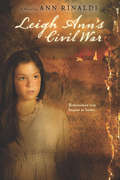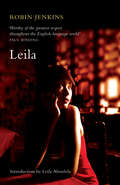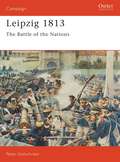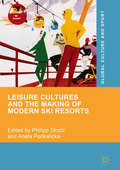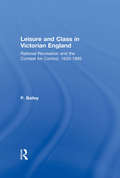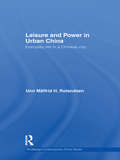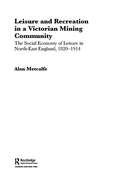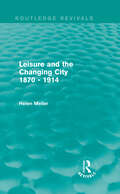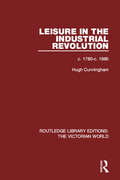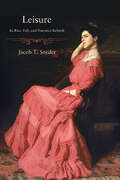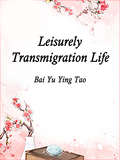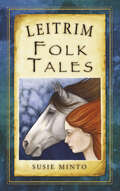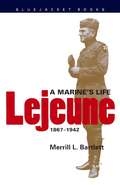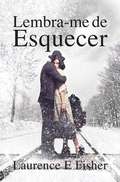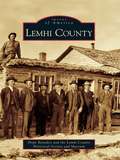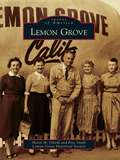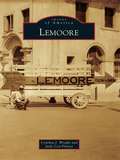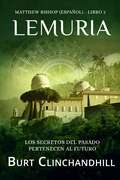- Table View
- List View
Leif The Lucky
by Ingri Daulaire Edgar P. DaulaireA biography of Leif Erickson, son of Eric the Red,a famous Viking and early visitor to North America.
Leigh Ann's Civil War
by Ann RinaldiRecounts the experiences of a spunky young girl, just eleven when the Civil War breaks out as she watches her brothers go to war, helps care for her mentally ill father, and falls in love with a boy determined to be a soldier.
Leigh Ann's Civil War: A Novel (Great Episodes)
by Ann RinaldiLeigh Ann Conners is spunky and determined. Although she often finds herself in trouble, she loves her two older brothers dearly and would do anything to make them proud. When the Yankees arrive in Roswell, Georgia, Leigh Ann places a French flag upon the family’s mill. She hopes the Yankees will then spare the mill from destruction, but her actions have disastrous results. Sent north with the women and children who worked in the mill—all branded traitors for making fabric for Confederate uniforms—Leigh Ann embarks on a journey that requires her to find her own inner strength. Only then will she be able to rise above the war raging around her.
Leila
by Robin JenkinsA Scotsman in 1950s Asia becomes entangled in love and political unrest: &“As a storyteller, Jenkins has few equals.&” —Tribune Set in the Far East in the 1950s, Leila is a tender love story involving a Scottish teacher, Andrew Sandilands, and Leila, the exotically beautiful daughter of a local politician. Leila is, like her father, implicated in the revolutionary tremors shaking the small country, and the lovers are soon torn between the small-minded mores of the expatriate community and Leila&’s determined efforts to play a role in her country&’s future. The masked oppression of the regime forms the backdrop to a novel where personal dramas collide with the legacies of colonialism, in this absorbing novel from the prize-winning author of The Cone Gatherers. &“A remarkable writer.&” —The Times
Leipzig 1813
by Peter HofschröerThe battle of Leipzig was, in terms of the number of combatants involved, the largest engagement of the entire Napoleonic Wars (1799-1815). It was the only battle of the wars in which all Allied armies (including even the Swedes) fielded troops against Napoleon. Peter Hofschroer looks at the run-up to this crucial encounter as well as the battle itself. A wealth of background information is chronicled, including the strategies of both sides and detailed information on each of the combatant forces. The numerous battles leading up to Leipzig are also discussed, providing a fascinating and illuminating overview of the whole campaign.
Leisure Cultures and the Making of Modern Ski Resorts (Global Culture and Sport Series)
by Philipp Strobl Aneta PodkalickaThis edited volume offers an historical perspective on the creation of a global mass industry around skiing. By focusing on the ski resort as loci par excellence for global exchange, the contributors consider the development of skiing around the world during the crucial post-war years. With its global lens, Leisure Cultures and the Making of Modern Ski Resorts highlights both commonalities and differences between countries. Experts across various fields of research cover developments across the ski-able world, from Europe, Asia and America to Australia. Attention to media and material cultures reveals an insight into global fashions, consumption and ski cultures, and the impact of mainstream media in the 1960s and 1970s. This global and interdisciplinary approach will appeal to history, sociology, cultural and media research scholars interested in a cultural history of skiing, as well as those with more broad interests in globalization, consumption research, and knowledge transfer.
Leisure and Class in Victorian England: Rational recreation and the contest for control, 1830-1885
by Peter BaileyFirst published in 2006. Routledge is an imprint of Taylor & Francis, an informa company.
Leisure and Power in Urban China: Everyday life in a Chinese city (Routledge Contemporary China Series)
by Unn Målfrid RolandsenLeisure and Power in Urban China is the first comprehensive study of leisure activities in a medium size Chinese city. Hitherto, studies of Chinese leisure have focused on holidays, festivals and tourism. This, however, is a study of the kinds of leisure that take place on regular workdays in a local environment of Quanzhou city. In doing so, Leisure and Power introduces leisure studies to China studies, and data from China to the field of Leisure studies. Based on interviews with people from all walks of life and case studies from bookshops, internet bars, Karaoke parlours, streets and public squares, Rolandsen brings to attention the importance of fun and socializing in the lives of Chinese urbanites. Central to the study is the contrast between popular practices and official discourse. Rolandsen provides in-depth analyses of the moralist "PRC leisure ethic" so characteristic of official Chinese publications and news media. Using examples from everyday life as a contrast, this study demonstrates that official propaganda has but little influence on how Chinese individuals lead their lives. Taking leisure as a point of departure, this book describes the new kinds of interaction between the local party-state and the population it seeks to govern. This book will be of interest to students and scholars of Chinese Studies, Leisure Studies, Urban Studies and Asian Studies in general.
Leisure and Recreation in a Victorian Mining Community: The Social Economy of Leisure in North-East England, 1820 – 1914 (Sport in the Global Society)
by Alan Metcalfe'Amusements they must have, or life would hardly be worth living...' Newcastle Weekly Chronicle, 1895 This text explores life in the mining villages of the north-east of England in the nineteenth and early twentieth centuries - a time of massive social and industrial change. The sporting lives of these communities are often marginalized by historians, but this thoroughly researched account reveals how play as well as work were central to the lives of the working classes. Miners contributed significantly to the economic success of the north-east during this time, yet living conditions in the mining villages were 'horrendous'. Sport and recreation were essential to bring meaning and pleasure to mining families, and were fundamental to the complex social relationships within and between communities. Features of this extensive text include: * analysis of the physical, social and economic structures that determined the leisure lives of the mining villages* the role of 'traditional' and 'new' sports* comparisons with other British regions.
Leisure and the Changing City 1870 - 1914 (Routledge Revivals)
by Helen MellerBy the late nineteenth century, the city had become the dominant social environment of Britain, with the majority of the population living in large cities, often with over 100, 000 inhabitants. The central concern of this book, first published in 1976, is to assess how successful the late Victorians were in creating a stimulating social environment whilst these developing cities were being transformed into modern industrial and commercial centres. Using Bristol as a case study, Helen Meller analyses the new relationships brought about by mass urbanisation, between city and citizen, environment and society. The book considers a variety of important features of the Victorian city, in particular the development of the main cultural institutions, the provision of leisure facilities by voluntary societies and the expansion of activities such as music, sport and commercial entertainment. Comparative examples are drawn from other cities, which illustrate the common social and cultural values of an urbanised nation. This is a very interesting title, of great relevance to students and academics of town planning, Victorian society, and the history and development of the modern city.
Leisure in the Industrial Revolution: c. 1780-c. 1880 (Routledge Library Editions: The Victorian World #12)
by Hugh CunninghamFirst published in 1980. This book is a study of what different classes of society understood by leisure and how they enjoyed it. It argues that many of the assumptions which have underlain the history of leisure are misleading, and in particular the notions that there was a vacuum in popular leisure in the early Industrial Revolution; that with industrialisation there was sharp discontinuity with the past; that cultural forms diffuse themselves only down the social scale, and that leisure helped ease class distinctions. An alternative interpretation is suggested in which popular culture can be seen as an active agent as well as a victim. This title will be of interest to students of history.
Leisure: Its Rise, Fall, and Potential Rebirth
by Jacob T. SnyderLeisure is a genealogy of the concept of leisure, from its peak in the classical age to its inversion and fall in modern liberalism. The goal of this genealogy is to analyze models of leisure and to inquire into the potential future shape of it. In that process, Jacob T. Snyder asks: what was leisure in its peak form in the classical age? In such a form, how was leisure understood to be connected to human flourishing? Then, what happened to leisure? What was the argument for work that won over the West? What must be rejected, or lost, about work if leisure is to be reanimated? In asking and answering these questions, Snyder argues that political reform, such as limiting work weeks, is insufficient to make us leisured. Leisure demands more, including a new understanding of what makes us happy and thriving creatures.
Leisurely Transmigration Life: Volume 1 (Volume 1 #1)
by Bai YuYingTaoHe had transmigrated, and as a result, he was dressed as a servant girl. Although the salary was high and the benefits were good, what if he wasn't free? It was a good thing that the original owner's mother and brother had come to redeem her after hanging around the manor for a few years.After two years of idyllic life at home, he married a perfect husband. He had thought that life would continue on like this, blandly and warmly. Who would have thought that his husband would actually be a black-skinned man pretending to be a pig to eat the tiger.Thus, under the push of her active hubby and lackeys, she eventually became a first class celebrity that everyone envied.However, who knew of the twists and turns involved?
Leisurely Transmigration Life: Volume 2 (Volume 2 #2)
by Bai YuYingTaoHe had transmigrated, and as a result, he was dressed as a servant girl. Although the salary was high and the benefits were good, what if he wasn't free? It was a good thing that the original owner's mother and brother had come to redeem her after hanging around the manor for a few years.After two years of idyllic life at home, he married a perfect husband. He had thought that life would continue on like this, blandly and warmly. Who would have thought that his husband would actually be a black-skinned man pretending to be a pig to eat the tiger.Thus, under the push of her active hubby and lackeys, she eventually became a first class celebrity that everyone envied.However, who knew of the twists and turns involved?
Leisurely Transmigration Life: Volume 3 (Volume 3 #3)
by Bai YuYingTaoHe had transmigrated, and as a result, he was dressed as a servant girl. Although the salary was high and the benefits were good, what if he wasn't free? It was a good thing that the original owner's mother and brother had come to redeem her after hanging around the manor for a few years.After two years of idyllic life at home, he married a perfect husband. He had thought that life would continue on like this, blandly and warmly. Who would have thought that his husband would actually be a black-skinned man pretending to be a pig to eat the tiger.Thus, under the push of her active hubby and lackeys, she eventually became a first class celebrity that everyone envied.However, who knew of the twists and turns involved?
Leisurely Transmigration Life: Volume 4 (Volume 4 #4)
by Bai YuYingTaoHe had transmigrated, and as a result, he was dressed as a servant girl. Although the salary was high and the benefits were good, what if he wasn't free? It was a good thing that the original owner's mother and brother had come to redeem her after hanging around the manor for a few years.After two years of idyllic life at home, he married a perfect husband. He had thought that life would continue on like this, blandly and warmly. Who would have thought that his husband would actually be a black-skinned man pretending to be a pig to eat the tiger.Thus, under the push of her active hubby and lackeys, she eventually became a first class celebrity that everyone envied.However, who knew of the twists and turns involved?
Leisurely Transmigration Life: Volume 5 (Volume 5 #5)
by Bai YuYingTaoHe had transmigrated, and as a result, he was dressed as a servant girl. Although the salary was high and the benefits were good, what if he wasn't free? It was a good thing that the original owner's mother and brother had come to redeem her after hanging around the manor for a few years.After two years of idyllic life at home, he married a perfect husband. He had thought that life would continue on like this, blandly and warmly. Who would have thought that his husband would actually be a black-skinned man pretending to be a pig to eat the tiger.Thus, under the push of her active hubby and lackeys, she eventually became a first class celebrity that everyone envied.However, who knew of the twists and turns involved?
Leitrim Folk Tales
by Susie MintoDo you know where the ‘twice-richest mountain in Ireland’ is? Or what mysterious creature is said to lurk in the waters of Glenade Lake? Or why you should never cheer on a fairy footballer? Discover the answers to these and more in this collection of tales from across the county. Leitrim is the place where, legend has it, Cormac Riabhac, The Irish ‘Samson’, performed his amazing feats of strength; where Fionn Mac Cumhaill, great warrior of the Fianna, is said to lie buried; and where the wrongful execution of Jack Bircall led to a miraculous cure. It is also said to be the home of a plethora of strange and magical creatures and stories abound of encounters fairies, mermen, enchanted cows and even supernatural salmon. These stories, beautifully illustrated by the author, bring to life the county’s varied landscape, from its lofty mountains to its bogs and loughs, and along the mighty Shannon River, whose twisting path was said to have been carved out by the antics of the giant serpent, the ‘Great Ollphéist’.
Lejeune
by Merrill L. BartlettThis well-documented and hard-hitting biography of the thirteenth commandant of the U.S. Marine Corps succeeds in converting John A. Lejeune from a near mythical figure in corps history to a flesh and blood officer who helped build the service from a small appendage of the U.S. Navy to an important arm of naval warfare.Commandant from 1920 to 1929, when he retired from military service to become president of Virginia Military Institute, Major General Lejeune is regarded by many as the man most responsible for the establishment of the modern Marine Corps. In capturing the life and times of this visionary leader who directed the corps toward major amphibious operations, Merrill Bartlett provides vivid insight into the political and military giants of the era and shows Lejeune to be an adroit player of Washington politics and a shrewd manipulator who marshalled the energies and loyalties of his senior officers to accomplish his vision
Lembra-me de Esquecer
by Laurence FisherA família significa tudo para Pam Aulsebrook. E quando ela é arrancada das garras da sua família durante a guerra, ela faz tudo para voltar para onde pertence. Sem a família ao seu lado, a segurança não significa nada. Arriscando tudo, Pam foge e volta para casa. Conhecer Paul Konieczny, um soldado polaco, vira o mundo de Pam de pernas para o ar. De repente, há uma nova razão para viver, amar e permanecer vivo. A pedido do marido, eles viajam juntos para uma Polónia devastada pela guerra, mas, à sua chegada, nada acontece conforme prometido. Agora, com a sua vida em risco, Pam deve tentar deixar a Polónia. Poderá Paul cumprir a sua promessa mais sagrada: levar Pam para casa e, eventualmente, juntar-se a ela em segurança?
Lembro-me
by Amaya EvansTempo presente: Melanie Hawkins, geneticista, independente e autossuficiente, vive uma existência monótona, na qual estão apenas seus amigos de infância e seu trabalho, além de uma tristeza eterna que tem sido sua fiel companheira desde que nasceu e para a qual não encontra uma explicação. Sofre pela perda de seu ex-noivo, pensando que nunca mais conhecerá o amor até que um dia sua vida inteira muda com a chegada de um homem, que lhe dá um presente muito especial... 1817: Julian Atherton, conde de Strathford, um homem rico, orgulhoso e possessivo. Vive sua vida de acordo com as regras da alta sociedade, mas tem uma grande dor em seu coração, pela mulher que amava e que um dia desapareceu, deixando-o sozinho com seu filho pequeno, Lucien. Apenas espera o retorno de sua amada Melanie; é por isso que desafia as leis da natureza e do destino, a fim de poder voltar a vê-la. A vida lhes dará uma segunda chance de se amarem e desfrutar da paixão que sempre existiu entre eles, mas também terão que aprender a se conhecerem novamente, passando por provas reais, onde apenas o sentimento que os une lhes dará forças para continuarem.
Lemhi County
by Hope Benedict Lemhi County Historical Society and MuseumSituated at the base of the Continental Divide and surrounded by the Lemhi and Salmon River Ranges, Lemhi County, Idaho, provides a fascinating look at the "Old West" as it makes its precarious transition to a new order. Traditional homeland to the people of Sacajawea, Lemhi County became a destination point for Lewis and Clark as they worked their way across the continent, for trappers, for missionaries, and finally, in 1866, for prospectors and those who kept them fed, clothed, and entertained. The community that developed in the valleys of the Salmon, Lemhi, and Pahsimeroi Rivers benefited from long-term mining and the simultaneous evolution of ranching and the timber industry, and this growth was well documented by local photographers.
Lemon Grove: Lemon Grove's Ace Drive-in, A Symbol Of Its Time (Images of America)
by Helen M. Ofield Lemon Grove Historical Society Pete SmithLemon Grove dates to 1892 when it first appeared in the San Diego County records as "Lemon Grove." The tiny, whistle-stop town emerged during the "second gold rush," the rise of California's citrus industry, which was facilitated by the 1849 Gold Rush, the break up of the Mexican ranchos in Alta California, and the advent of statehood for California in 1850. Land speculators poured into California, lured by the exquisite climate, five growing seasons, and the possibilities for success in agriculture and business. Lemon Grove became home to gentlemen farmers from the East and Midwest, whose descendants live on in the community to this day.
Lemoore
by Judy Cox-Finney Cynthia J. WrightThe Tachi-Yokut Indians made a subsistence living around the great inland sea known as Tulare Lake, near present-day Lemoore, long before Dr. Laverne Lee Moore came to town in 1871. Still before Moore came other Anglo settlers. The Rhoads family settled and built an adobe house, which remains today, where Daniel and Sarah Rhoads raised a family, ranched, and did business in 1856. Rhoads was part of the group that rescued the ill-fated Donner party. The U.S. Post Office saw fit to name the town after its founder. During World War II, Lemoore was the site of a U.S. Army Air Force training camp. Since 1963, it has been home to one of the largest inland U.S. air bases: Naval Air Station Lemoore.
Lemuria (Matthew Bishop (Español) #2)
by Burt ClinchandhillLos secretos del pasado pertenecen al futuro. Cuando en todo el mundo desaparecen las últimas tribus vivas aisladas, el profesor Matthew Bishop se ve arrastrado de nuevo, sin quererlo, a una aventura que le llevará por todo el globo. Su interés personal aumenta cuando su íntima amiga Jennifer Porter desaparece y parece estar implicada de algún modo. Siguiendo las pistas ocultas, y con la ayuda del Vaticano y de viejos amigos, Bishop descubre la verdad sobre el siguiente paso en la evolución. Es una verdad que no termina en esta Tierra, sino que podría muy bien significar el final de ella, en un viaje a través de tres continentes y hacia los cielos. EVOLVED PUBLISHING PRESENTA el segundo libro de la serie "Matthew Bishop" de thrillers de conspiraciones religiosas, ideal para fans de Dan Brown y Michael Crichton.


